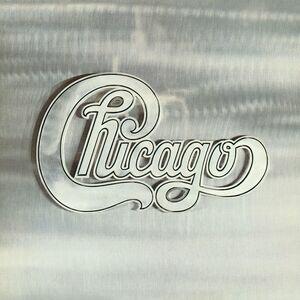
Caption
Chicago's second album, released in 1970, featured its iconic logo on the cover. The logo was inspired by Coca-Cola's branding.
|Updated: April 4, 2025 11:04 PM
Chicago will headline the historic Macon City Auditorium on April 9, kicking off the unofficial start to Georgia’s summer concert season.
Few American rock groups have toured as long this band.
Chicago formed in its namesake city in 1967 as a seven-piece ensemble, injecting jazz and blues into a classic rock setup.
More than 50 years later, the guys are still out on the road for 100 shows a year because they “love it,” trumpeter Lee Loughnane, one of three founders (including trombonist James Pankow and singer/keyboardist Robert Lamm) who still perform under the moniker, told GPB.
Watch this live video to see how the band sounds these days.
Over the years, members have come and gone, but that doesn’t stop fans’ appetite for hits from Chicago’s 100-million-selling album catalogue, Loughnane said.
“I don't know if people even know who the original members are or if they care, but they do care about the songs," he said.
During a recent guest appearance on Kelly Clarkson’s TV talk show, the group cranked out energetic renditions of its 1970s hits “Saturday in the Park” and “25 or 6 to 4.”
Videos of the show began making the rounds on social media afterward, with fans commenting that the Rock and Roll Hall of Famers were “as good as they were back in the day.”
“NO band in the world sounds this good with most members 75+ years old,” another poster wrote on YouTube.
Loughnane said he has a routine on tour to keep up the breathwork for those famous trumpet melodies.
Chicago rose to fame in a golden age of brass, where horn sections defined the sound of every genre from R&B and rock to disco and Top-40. Real horns have long been replaced by synthesizers on many recordings, but Loughnane said he hopes the trends will reverse.
After horns dominated big bands in the 1940s and “moved away from the original set up of rock and roll bands with the guitar bass and drums and keyboard,” he said of the 1950s, the 1960s and 1970s ushered in a new era for trumpets, trombones and saxophones on hit songs.
Their popularity "'will come back again," he said.
Loughnane said the group began its career with the intention of keeping egos in check. “We were a faceless band” that relied on the strength of its branding, and only when MTV came along did the group members become widely recognized in public.

Chicago's second album, released in 1970, featured its iconic logo on the cover. The logo was inspired by Coca-Cola's branding.
Chicago owes something to the Peach State: In 1969, CBS Records commissioned a typeface for Chicago by designer John Berg, a look that borrowed the style of Georgia’s most famous brand: Coca-Cola’s script logo was a direct inspiration. (And some of us think the Chicago logo resembles the Chick-Fil-A logo, too).
"What's not to like?" Loughnane said of the way the design turned out. "It became our identity."
The one-name, one-font look has served the Chicago band's brand across decades, a new millennium and world events. "We are lucky to have so many eras in our career,” Loughnane said.
He hopes younger generations seeing the band live for the first time after discovering the group on streaming will glimpse the breadth of its songwriting and performance styles.
"Some people think we are a ballad band,” he said of the band’s chart-topping stretch of 1980s hits made with producer David Foster, including, “Hard to Say I’m Sorry” and “You’re the Inspiration” to “Will You Still Love Me.”
“But we're not,” he said. “We're an ‘all-music’ band."
Chicago released its first greatest hits album in 1975 but “have had many more since then,” Loughnane said. “Usually [a greatest hits album] means a band is over, but for us it was just the beginning.”
The band is also the subject of a 2016 documentary, Now More Than Ever, which aired on CNN. That film includes the struggles and exits of members including co-founders, drummer Danny Seraphine, who left in 1990, Walter Parazaider, who retired in 2017 and singer Peter Cetera, who left in 1985 and retired in 2018. The band’s first guitarist Terry Kath, died in 1978.
Loughnane said 2025 audiences are looking to music for an escape, and Chicago still aims to please. “We play for the audience like we’re playing for the first time," he said.